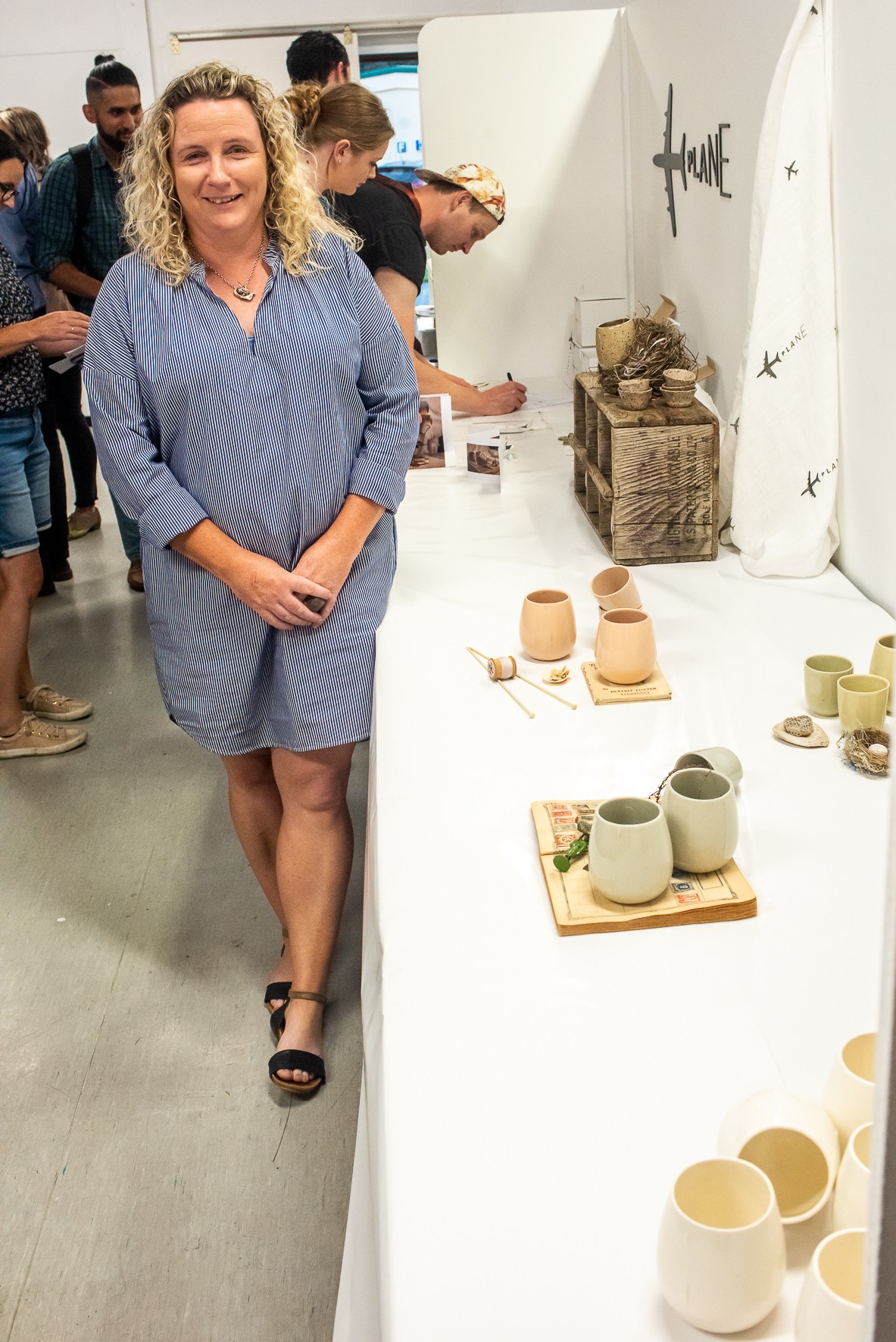- Home
- IDEAschool / Arts & Design / Creative Studies
- NZ Diploma in Arts and Design (Level 6)
NZ Diploma in Arts and Design (Level 6)
Develop your creative career
Build on your skills and knowledge from the Level 5 diplomas, through engaging in a series of real-life and in-house projects. You can explore various creative disciplines including design, fashion, music, screen production and visual arts.
This diploma teaches the skills, knowledge and attributes needed to think innovatively and develop a career as a creative practitioner in your chosen discipline.
With your diploma completed successfully you can continue on to the final year of the Bachelor of Creative Practice.
Look at our works @ ideaschool.ac.nz
Career and Study Opportunities
Possible jobs and career opportunities can include:
- Arts / Fashion / Music / Screen administration / industry entry level position
- Graphic design entry level position
- Furniture design entry level position
- Gallery or museum curation entry level position
- Illustrator, Painter, Sculptor, Printmaker
- Spatial / interior design intern
- Web designer
- Fashion designer
- Musician, Composer, Performer
- Screen, Film, TV production
Continue your study pathway with a Bachelor of Creative Practice followed by an Honours or Masters degree.
Outline
Throughout the delivery of the diploma, you will learn through engaging in projects. This project-based learning approach places you at the centre of the learning experience and allows for the embedding of theory and practice within the project context.
The Level 6 projects are increasingly self-directed, ensure the development of a stronger global understanding of creative industries and include increasing professional skills such as basic marketing and business management, as well as legal issues relative to the individual creative practice.
As a graduate of this qualification you will be able to:
- Apply specialised skills and theoretical knowledge in the production of work in a selected area of art, design, music, fashion and screen production.
- Use investigative tools with creative processes, methods and technologies to synthesise ideas and solve problems in a selected area of art,
- design, music, fashion and screen production.
- Critically analyse research findings to support the development of ideas and to position own work within conventions and contexts in art, design, music, fashion and screen production.
- Demonstrate leadership and professional practice to manage projects/briefs and prepare for selected career pathways in art, design, music, fashion and screen production.
- Critically evaluate work, communicate to a range of audiences, and present own resolved work in a real-world context.
Subject areas include:
- Design
- Fashion
- Music
- Screen production
- Visual arts
Dates
There is one entry date per year:
- February
Entry
Entry Requirements
The academic entry requirement for the NZ Diploma in Arts and Design [Level 6] programme may be limited by the number of places available.
An offer of a place on the programme will be extended to applicants who meet the entry criteria (120 credits of an NZQA approved Level 5 Degree/Diploma qualification or equivalent) or can satisfactorily prove that s/he has the potential to succeed on the programme and is over the age of 20 by the official start date of the programme of study.
Applicants must provide a hand-written letter of application and a portfolio of work that represents their level of achievement at the interview.
Interview
All applicants will be required to attend an interview (and may bring whānau support) and will need to bring evidence of creative work and any documentation of process to the interview.
The purpose of the interview is to confirm the authenticity of the applicant’s portfolio of work and to assess the portfolio of work and the applicant’s suitability for the programme. The interview will determine whether an applicant is offered a place on the programme and at what level of the programme the applicant is offered a place (see Level Placement below). Thus, meeting the academic entry requirement is not on its own sufficient to ensure admission to the programme.
The interviews will be conducted by two IDEAschool academic staff and in the case of Cross Credit or Level Placement by the Programme Coordinator and a staff member.
English Language Entry Requirements
All applicants must demonstrate an acceptable level of English language fluency prior to acceptance in the programme.
Ways in which English language fluency may be demonstrated include the following:
- Successful study of a programme in which English was the language of instruction (subject to the conditions in the EIT Database for English Language Proficiency (DELP)).
- Completion of a New Zealand Certificate in English Language (Level 4 with any endorsement).
- IELTS Academic score of 6, with no band score lower than 5.5, achieved in a single test within the two years preceding enrolment.
- Accepted international equivalents to the above IELTS scores, achieved in a single test within two years preceding enrolment (see equivalency tables in DELP).
Entry with Credit
Level placement through recognition of prior learning (RPL) is the mechanism by which the programme ensures that students are placed at an appropriate level. On the basis of evidence provided at an interview and the presentation of an application portfolio, applicants may be granted RPL and be placed in levels 6, or 7 of the programme. Applicants may be awarded credit for whole levels of the programme in this way.
For information and enquiries about RPL and Cross Credit please contact Irina Konig on 06 830 5021, ikonig@eit.ac.nz.
Academic Learning Services
Academic Learning Services is here to assist you on your journey towards the successful completion of your studies at EIT. Our aim is for you to become confident, competent and independent learners.
We have dedicated advisors who can assist with your learning.
Find out more:
Scholarships
 EIT offers a variety of scholarships across various subjects and programme levels. Some scholarships are based on your age, some are specific to the subject you want to study. Not all scholarships are based on your academic ability and anyone wanting to study should investigate what scholarships are available to them.
EIT offers a variety of scholarships across various subjects and programme levels. Some scholarships are based on your age, some are specific to the subject you want to study. Not all scholarships are based on your academic ability and anyone wanting to study should investigate what scholarships are available to them.
You can find a list of EIT scholarships here however there are many more scholarships offered nationally. Information about these is on an database called “givME”. givME is accessible at EIT or at some public libraries. If you would like to come to EIT to look through the giveME database don’t hesitate to contact scholarships@eit.ac.nz or call in for a chat.


